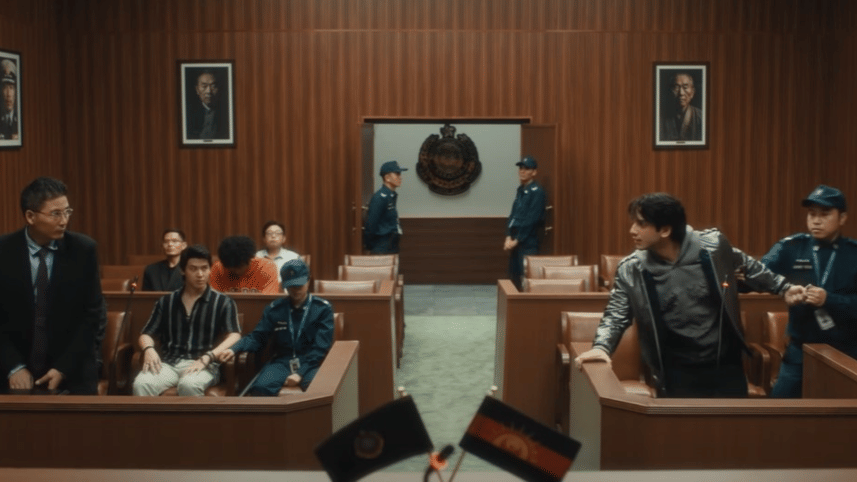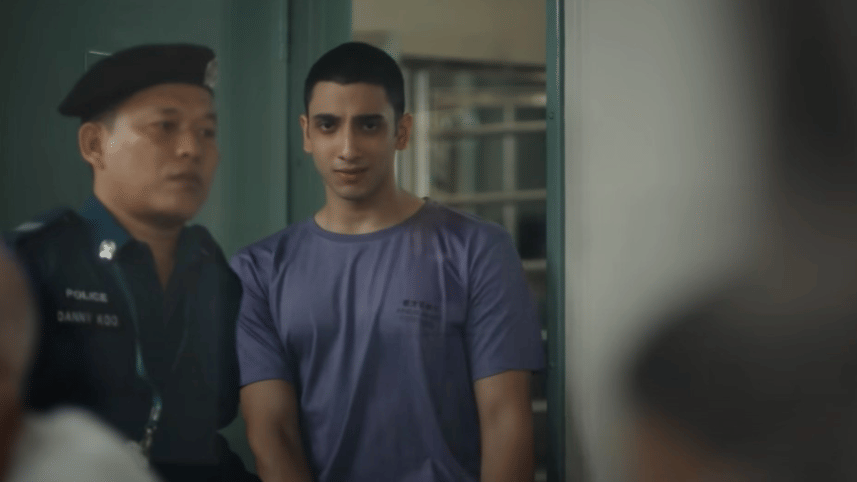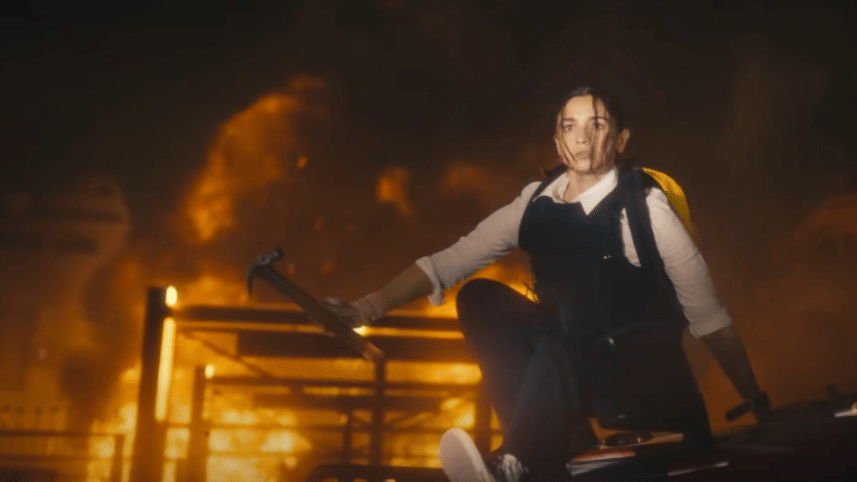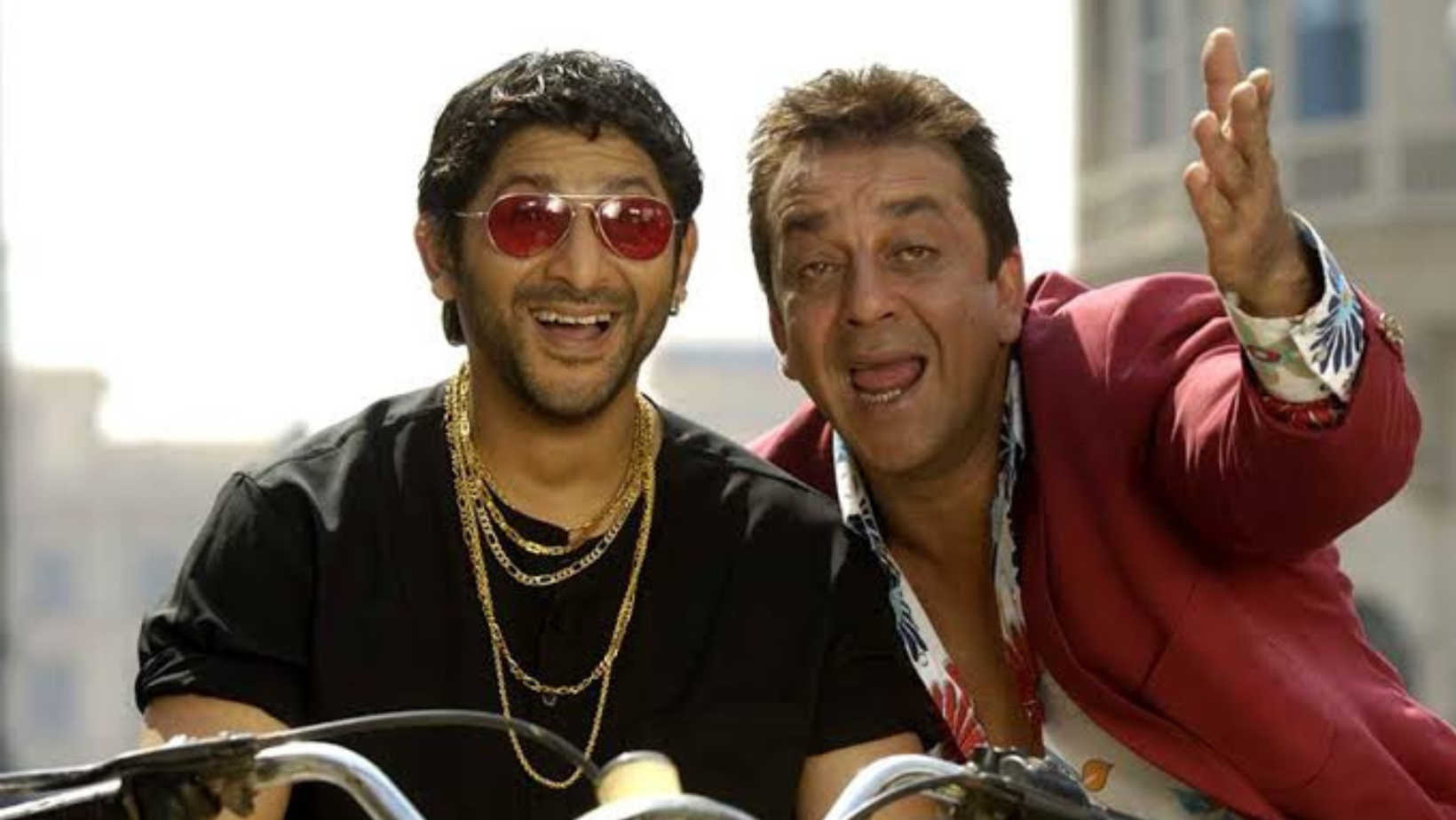‘Jigra’ packs intense action leaving emotions behind

Showcasing the versatile Alia Bhatt at her most formidable, director Vasan Bala brings a thrilling sibling drama wrapped as a jailbreak story in "Jigra". Produced by Karan Johar's Dharma Productions and Viacom18, the film follows Satya (Alia Bhatt), a fiercely protective older sister determined to save her younger brother, Ankur (Vedang Raina), from death row.
When Ankur is framed for drug possession and sentenced to death in a fictional Hanshi Dao, a country known for its draconian drug laws, Satya embarks on a perilous mission to free him. Along the way, she meets a retired gangster Bhatia (Manoj Pahwa), and ex-cop Muthu (Rahul Ravindran), navigating the challenges of a foreign land while confronting their motives.

"Jigra" begins with much promise — the set-up of Satya and Ankur's relationship is heartwarming, even if a bit hurried. The two siblings, orphaned at a young age and raised by wealthy relatives, share a bond that drives the core of the film. Satya, having taken on the role of protector, is both tough and emotionally scarred, shaped by witnessing their father's suicide when they were mere children. Ankur, in contrast, is naïve and desperate to make a name for himself, leading to his involvement in a reckless scheme with their wealthy cousin that ultimately lands him in prison.
Where the film excels is in its central performance. Alia Bhatt once again proves her mettle as one of the finest actors of her generation. She portrays Satya with a layered complexity—her fierce determination to save her brother is occasionally undercut by moments of vulnerability that make her character feel real and relatable. She thrives in the role's emotional and physical demands, especially in the action sequences where she becomes a force to be reckoned with. From scaling rooftops to engaging in brutal hand-to-hand combat, her intensity is palpable, and she commands the screen with ease. Her portrayal of Satya's emotional journey, particularly the feelings of helplessness and rage at the injustice Ankur faces, is what elevates the film beyond its sometimes superficial narrative.

Vedang Raina competently plays Ankur but is largely overshadowed by Bhatt's dominating presence. He captures the fear and confusion of a young man caught in a situation far beyond his control, but the script doesn't give him much room to develop his character. Ankur's storyline, which sees him forging alliances with fellow inmates against a sadistic prison warden, is functional but lacks the depth that could have made his plight more emotionally resonant.
The supporting cast adds texture to the film, even if their characters are not fully fleshed out. Manoj Pahwa, as the retired gangster Bhatia, brings a dash of humour and warmth to the proceedings, providing a nice contrast to the otherwise intense tone of the film. Rahul Ravindran as the redemption-seeking ex-cop Muthu is reliable, though his character feels underutilised. Vivek Gomber, as the cold and sadistic warden Hans Raj Landa, plays his part effectively, though his character lacks nuance, falling into the trope of the generic villain.

While the performances keep "Jigra" engaging, the film struggles with its pacing and narrative coherence. Bala, who has a penchant for stylish storytelling, seems more interested in its visual flair than in crafting a tightly woven plot. The film is littered with flashbacks and sequences that jump between time and space, often making it difficult to discern the distinction between the real-time occurrences and the characters' memory or imagination. This erratic editing disrupts the flow of the story, making it harder for the audience to fully invest in the stakes of the film. The parallel plotlines—Satya's mission to save her brother from the outside and Ankur's survival story inside the lock-up—feel disjointed as if they belong to two separate films that never fully coalesce into a cohesive whole.
Cinematographer Swapnil Sonawane deserves due credit for crafting some truly striking visuals. The film's colour palette, dominated by cool blues and greys, effectively mirrors the cold and hostile environment Satya finds herself. The action sequences are especially well-shot, with a gritty realism that makes the physicality of the fights feel raw and urgent.

One standout scene sees Satya sliding down a sloped rooftop, a sequence that is both thrilling and beautifully choreographed. However, despite the visual spectacle, the film occasionally feels overly stylized, with some sequences—such as the frequent intercutting between different timelines—appearing more like exercises in aestheticism than necessary storytelling devices.
Achint Thakkar's background score is another high point, enhancing the film's emotional beats without overpowering them. The music, a blend of contemporary sounds with more traditional Hindi film elements, complements the film's tone, though the obligatory inclusion of an Arijit Singh track during the end credits feels somewhat out of place, a commercial afterthought in an otherwise atmospheric score.

While "Jigra" has moments of brilliance, particularly in its action sequences and Bhatt's performance, it falters in its storytelling. The screenplay, written by Bala and Debashish Irengbam, lacks the sharpness and focus that a thriller of this nature requires. The film's attempts to juggle multiple themes—family loyalty, personal redemption, and corrupt justice systems—are admirable, but ultimately remain underdeveloped. The fictional country of Hanshi Dao, for instance, is painted in broad strokes as a place with draconian drug laws, but there's little exploration of the country's culture or political landscape, which could have added more depth to the story.
The film's climax, though action-packed, feels overblown and chaotic. The final jailbreak sequence, while technically impressive, lacks emotional weight. By the time the credits rolled, I was left with the sense that "Jigra" could have been so much more if it had focused less on style and more on substance. It is a film that is entertaining in parts but falls short of being the gripping, edge-of-your-seat thriller it aspires to be.




 For all latest news, follow The Daily Star's Google News channel.
For all latest news, follow The Daily Star's Google News channel. 
Comments